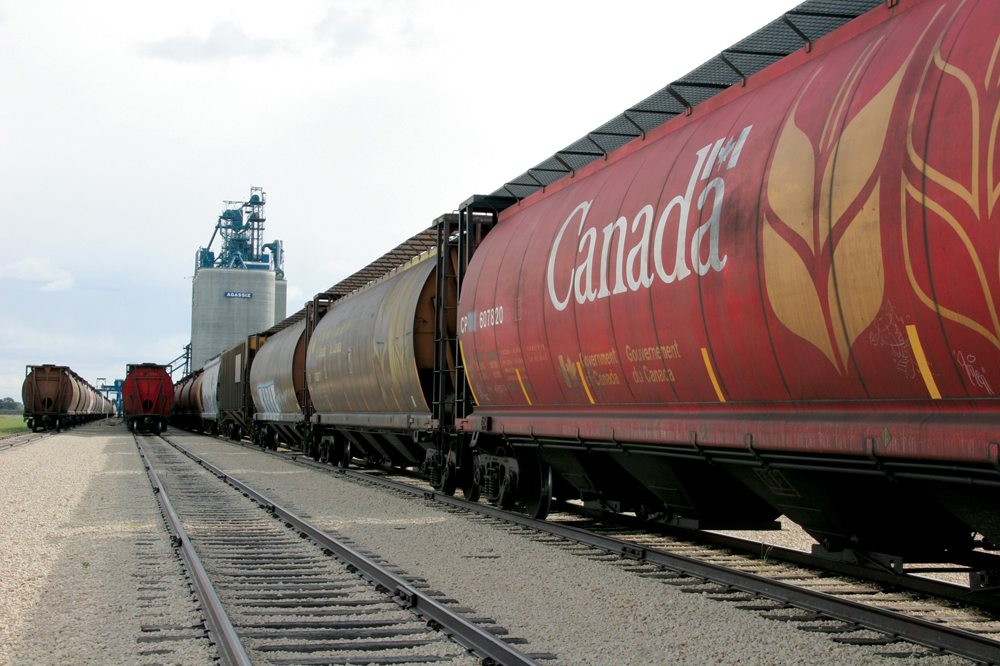Liberals and Conservatives were quick to blame each other May 11 for the latest snafu in getting the transport modernization bill passed into law.
Anxious farm groups will now have to wait until May 22 at the earliest for action.
The Senate sent the bill back to the Commons with two amendments on May 10 and the next morning Environment Minister Catherine McKenna, acting for Transport Minister Marc Garneau, said the government wouldn’t accept them.
Read Also

Mazergroup’s Bob Mazer dies
Mazergroup’s Bob Mazer, who helped grow his family’s company into a string of farm equipment dealerships and the main dealer for New Holland machinery in Saskatchewan and Manitoba, died July 6 from cancer.
The government asked for quick passage of a motion to reject the Senate amendments on the understanding that the senators would then pass the bill with amendments the minister offered earlier in the month, Liberal sources say. Royal assent for the bill was lined up for later in the day. If it had happened that way, the bill would now be law.
That was all contingent on the Conservatives and the NDP agreeing to vote on the government motion that day. Liberals say the Conservatives insisted on a recorded vote, which under parliamentary rules couldn’t happen until the next Tuesday the Commons sat. That would be May 22, following a week-long break before the Victoria Day weekend.
The Conservatives insisted it was the Liberals who forced the delay to May 22 because they wouldn’t accept the latest Senate amendments. If they had, the Conservatives said, the bill could have gone back to the Senate May 11 and royal assent could have followed.
That ignores the fact that the cabinet would have had to approve the May 10 Senate amendments and with Prime Minister Trudeau, Garneau and other ministers away from Ottawa on government business at the time, cabinet approval couldn’t have happened until sometime in the break week. Which would still have left the Commons facing the motion on May 22.
Jeff Nielsen, president of Grain Growers of Canada, said after the Commons failed to advance the bill May 11 that farmers are disappointed the bill was not passed this week. He noted the bill has been through significant debate and said it was time that MPs and senators approve it. Partisan politics and procedural tactics need to be “put aside and parliamentarians do what is best for grain farmers by passing the bill,” he said.
GGC members were in Ottawa recently talking to MPs and senators about a number of key issues facing their sector including getting the transport bill passed so they have certainty when it comes to grain transportation.
Ron Bonnett, president of the Canadian Federation of Agriculture, said in a letter to MPs on May 10 that they needed to pass the bill ASAP.
“Grain farmers in the Prairies are so close to breathing a sigh of relief — knowing that this year, finally, they’ll be able to deliver their crops to customers abroad without worrying that a rail backlog will negatively impact them again. After losing billions of dollars over the past several years, the time has come to resolve this issue.”
While not perfect, the transport bill approved by the Commons on May 3 “has the right combination of tools to improve Canada’s grain-shipping systems so that farmers can access a more reliable, efficient, and competitive railway network.”
Bonnett said farm groups are encouraged “that parliamentarians in both chambers have taken the plight of western grain farmers into account in their deliberations. But it’s late in the game for ongoing changes. After many rounds of review, we need the bill passed so that a new law is in place by Aug. 1 when the crop-shipping season begins.”
The Alberta Wheat Commission (AWC) and Alberta Barley said further delays in passing the bill creates a risk “that farmers could see another crop year with no mechanisms in place to hold the railways accountable.”
They said they’re concerned the bill won’t become law before Parliament recesses for the summer in mid-June. AWC chairman Kevin Bender said, “It’s growing increasingly possible that we’ll see another crop year go by without any mechanisms in place that demand accountability from the railways. That means we’re running the risk of seeing another backlog before we can recover from the millions of tonnes still left in the system from this year’s delays.”
Other groups representing major freight shippers had wanted the government to accept several Senate amendments that will make the bill more useful to shippers. They said the government needed to act on “well-considered amendments” crafted by the Senate.



















